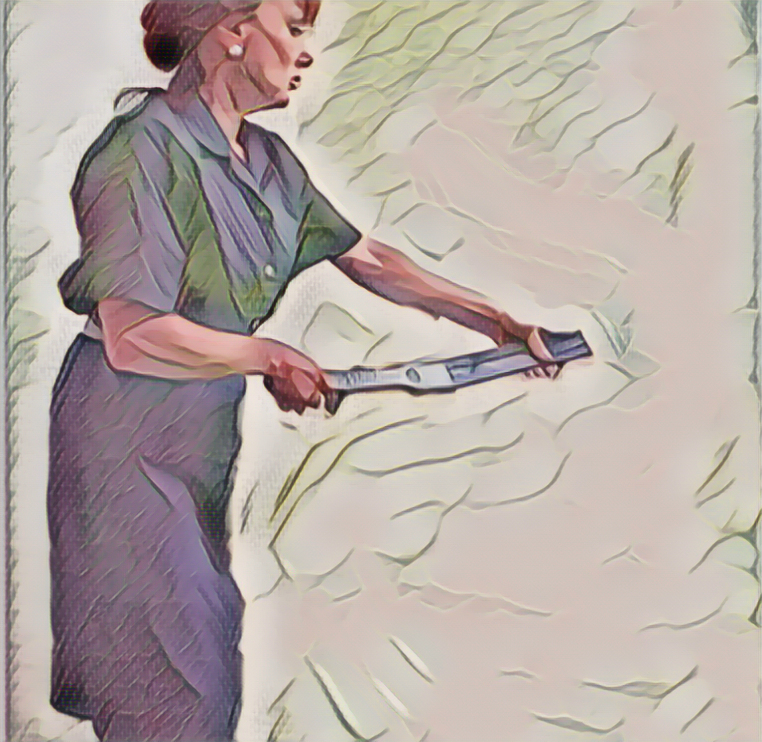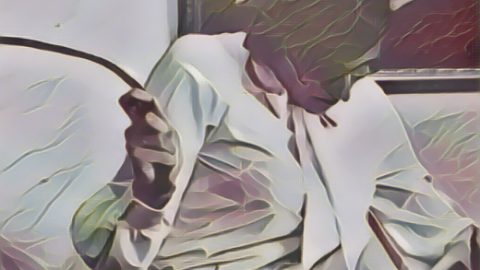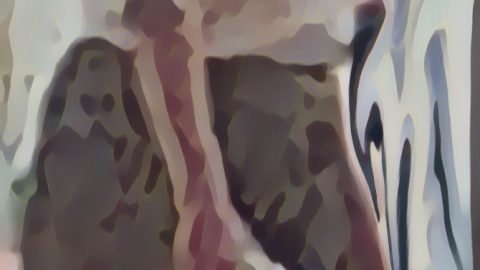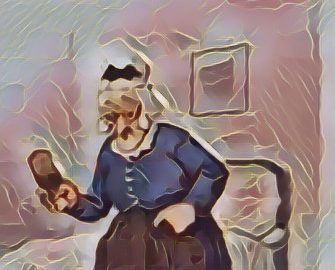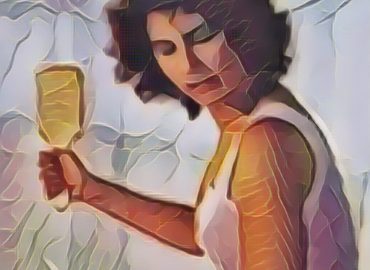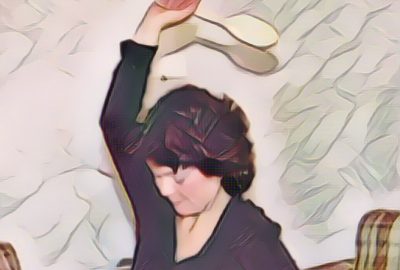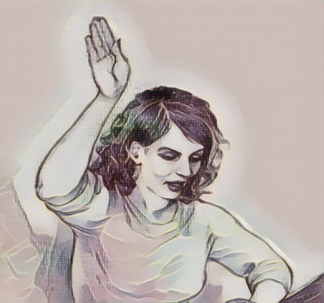I have previously described, with some detail, the occasions upon which I received a sound chastisement from my friend’s mother—a most formidable lady, to whom I submitted with a curious blend of apprehension and admiration. There was, I must admit, a certain thrill in her authority, and I harboured a secret, boyish admiration for her, which only made my acquiescence to her discipline all the more certain. Her lap was broad and inviting, her manner brisk yet not unkind, and when she summoned me for correction, I would find myself both fearful and, in a peculiar way, grateful for her attention.
The instrument of my correction was always the same: a garrison belt, as wide as a man’s hand and adorned with a heavy, gleaming buckle. I can still recall the sound of leather sliding through belt loops—a slow, deliberate music that set my heart thumping in my chest. She would unbuckle it with a practised hand, her eyes fixed upon me, and as she drew it free, she would remind me, in tones both stern and almost affectionate, of the burning and stinging that awaited me. The anticipation was, in its way, as memorable as the punishment itself.
The last time she corrected me stands out in my memory with particular clarity. I had, in a fit of adolescent bravado, taken up smoking at school. Word of my new vice reached her ears, and she was having none of it. She informed me, in no uncertain terms, that I was to abandon the habit at once. When I protested—pointing out, with the logic of youth, that my own mother smoked—she fixed me with a look that brooked no argument. “Young ones,” she said, “must do as they are told, not as they see.” There was a finality in her voice that made me feel, for a moment, very small indeed.
Without further ado, she seized my wrist in her strong, capable hand and marched me into her house. I was astonished by her strength; I felt as helpless as a rag doll as she propelled me through the familiar rooms, the scent of furniture polish and baking bread lingering in the air. My heart pounded so loudly I could hear it in my ears, and my palms grew clammy with dread. Each step seemed to echo, the floorboards creaking beneath our feet, amplifying my sense of impending doom. Before I knew it, I was draped over the back of the old chintz sofa, my heart hammering, my cheeks burning with shame and apprehension. The fabric was rough against my face, and I could smell the faint, musty scent of old upholstery mixed with the sharper tang of fear.
My friend’s grandmother was present that day—a small, sharp-eyed lady with a no-nonsense air. Between the two of them, I stood no chance. I pleaded, my voice cracking, for mercy, but my friend’s mother paid me no heed. She strode to the far end of the couch, unbuckled her thick belt, and snapped it smartly against the cushions. The sound was sharp and menacing, echoing off the walls and making me flinch even before the first blow. The room seemed to shrink, the air thick with tension, every tick of the clock stretching out the moment. My skin prickled with anticipation, and my breath came in shallow, ragged gasps.
She took up her position behind me, ensuring she had a clear view of her intended target. As she scolded me for my foolishness, her mother—my friend’s grandmother—took my hands in her own, holding them firmly in front of me so I could not shield myself. I felt utterly exposed, my face pressed into the sofa’s faded fabric, the world reduced to the scent of old upholstery and the sound of my own anxious breathing. My stomach twisted with dread, and my legs trembled uncontrollably. The belt hovered in the air, and I could almost feel its weight before it even landed.
The first stroke of the belt was like nothing I had ever experienced. It landed with a crack that seemed to reverberate through my very bones, a searing line of fire across my skin. The pain was immediate and shocking, a hot, stinging burn that made me gasp and clench my fists. Each subsequent stroke came with agonising precision, the belt whistling through the air before it struck, the sound followed instantly by a fresh wave of pain. She delivered a stroke for every year of my age, each one burning hotter than the last, the sensation building until it felt as though my entire being was focused on that single, throbbing ache. My legs kicked involuntarily, and I bit my lip to keep from crying out, but soon the tears came, hot and unstoppable, blurring my vision and soaking the sofa beneath my face. My resolve crumbled with each blow, my body wracked with sobs, my mind a whirl of regret, humiliation, and desperate promises to be good.
The sounds of the punishment filled the room—the sharp crack of leather, my own muffled cries, the stern admonishments of my friend’s mother, and the soft, steady grip of my friend’s grandmother holding me in place. The pain was overwhelming, but so too was the sense of being completely at their mercy, powerless and small. By the end, I was sobbing, my resolve utterly broken, and I would have promised anything—never to smoke again, never to so much as look at a cigarette, if only the ordeal would end. My skin throbbed with heat, each breath a shudder, my body limp and exhausted.
Yet, for all the pain and humiliation, I bore no resentment towards those two formidable ladies. In my heart, I understood that they acted out of care, their discipline a kind of fierce, protective love. They were, in their way, the guardians of my better self, determined to steer me from folly, even if it meant a sore bottom and a bruised pride.
When the punishment was over, and my tears had subsided to hiccups, my friend’s grandmother gathered me onto her lap. She stroked my hair with a gentleness that belied her earlier firmness, murmuring words of forgiveness. I nestled against her, comforted by her warmth and the faint scent of lavender. My body still ached, the sting lingering as a reminder, but her embrace soothed me, and I felt the tension begin to ebb away. Then, I was passed to my friend’s mother, who held me close and smoothed my hair, assuring me that all was forgiven. In those moments, I felt safe, cherished, and—despite everything—grateful for their unwavering care, the pain already fading into memory, replaced by a deep sense of belonging and love.
